15 Oct 2020 | China, India, News and features, Pakistan
[vc_row][vc_column][vc_column_text]The Indian government’s revocation of autonomy for Jammu and Kashmir has been a disaster for free speech.
In October 2019, Narendra Modi’s government rescinded article 370 of the Indian constitution which had given the region special autonomous status since 1954. The region is now run as two separate union territories – Ladakh, and Jammu and Kashmir.
Ever since its autonomy was curtailed, access to information for inhabitants has been greatly reduced.
Despite palpable risks to their safety, journalists in the disputed region have remained, but a lack of access to internet has hindered their progress.
Set in the Himalayas, the region is famously beautiful – often described as “heaven on Earth” – but this is in stark contrast to the fierce and often bloody dispute wracking Jammu and Kashmir.
As the situation worsens, we look back at pieces published in Index magazine and online exploring the impact the conflict has had on free speech, journalists and the people who call Kashmir their home.
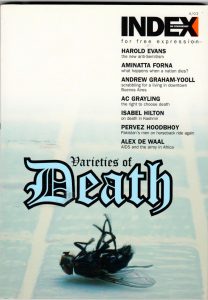
Varieties of death, the winter 2002 issue of Index on Censorship magazine.
Journalist and broadcaster Isabel Hilton visited Kashmir in the early 2000s. She documented her experiences in 2002 and spoke of her encounters with Pakistani military.
The piece is an insight into how much of major conflicts can seem underreported, but in fact are not. For journalists working in the region, the daily reports of death tolls and atrocities are both a livelihood and a duty, but only major events tend to make headline news across the world.
She wrote: “In Srinagar, the journalists — themselves constantly threatened and often attacked by both sides — have grown weary of looking for new angles on death. Only the larger outrages — such as the car bomb attack on Srinagar’s assembly building on 1 October last year which claimed more than 30 lives — are reported internationally.”
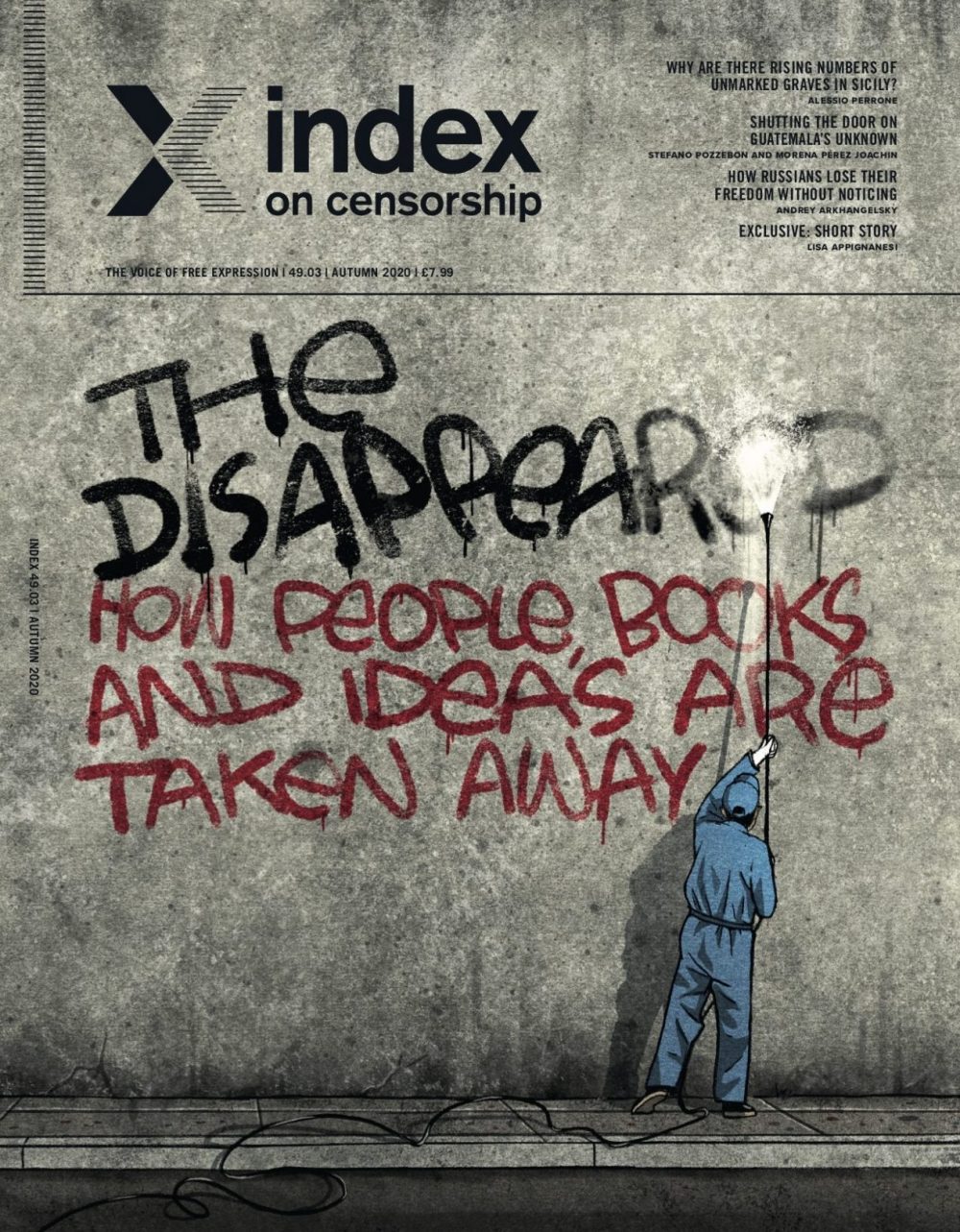
Index on Censorship autumn 2020 issue on the theme of the disappeared
In the most recent edition of Index (which can be read here), Bilal Ahmad Pandow discussed the experiences of journalists in Kashmir.
Since India took control and imposed direct rule, a feeling of (relative) security in the region has been lost and censorship laws have taken a firm grip, he writes.
A new policy for journalists introduced this year by the Jammu and Kashmir government imposes rules on restricting “fake news, plagiarism and unethical or anti-national content”.
“Pressure on media freedom was ratcheted up even further with the introduction of the New Media Policy 2020. Journalists were, of course, already operating under tremendous pressure – harassment, intimidation, the choking of advertisement revenue, imprisonment, draconian laws and a communication blockade – all of which are forcing journalists to self-censor.”
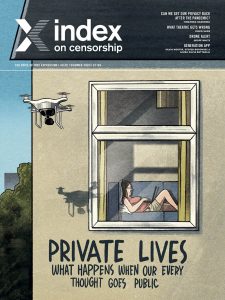
Index on Censorship summer 2020 issue on the theme of privacy
Earlier this year, Kashmiri journalist Bilal Hussain spoke with Index’s Orna Herr on life in the media in the region.
He told Herr of his personal struggles to get copy and videos past online restrictions and out of the country. Journalists have been creative in their attempts to get past the internet blocks designed to limit media freedom, he said.
“Since March 2020, the government allowed restricted internet access that blocked many news websites. So journalists installed VPNs that could break the firewall and enabled journalists to access those websites.”
“Some journalists used to travel to Delhi to access the internet and came back after filing their reports.”
“To get video interviews to my editor in Paris, I put them on a memory stick and gave it to a friend who was travelling to the USA, and he sent it on from there.”

Varieties of death, the winter 2002 issue of Index on Censorship magazine.
Poet Agha Shadid Ali was born in Kashmir in 1949. He moved to the USA in 1976 but his home was always at the forefront of his literary works.
His 1997 work Country Without a Post Office discussed the plight of Kashmir. At the time of their publication, he said: “My entire emotional and imaginative life began to revolve around the suffering of Kashmir.”
Ali died of brain cancer in 2001. Index included two of his poems following the 2002 Kaluchak massacre in which militants attacked a tourist bus, killing 31 people and injuring 47.
[/vc_column_text][/vc_column][/vc_row][vc_row][vc_column][vc_column_text]

Media moguls & megalomania, the September 1994 issue of Index on Censorship magazine
This piece from 1994 by Caroline Moorehead shows how the human rights spotlight was finally being turned onto Jammu and Kashmir.
She writes: “In their war against the militants…the Indian police and security fores have come to treat disappearances with a combination of lethargy, obfuscation and threats, connived at by the judiciary. Court orders are ignored, relatives warned to stop making enquiries, and the case is shifted from place to place while documents are mislaid and those responsible posted to other places.”
It tells the story of the disappearance of 22-year-old Harjit Singh, a far from unusual story in the region.[/vc_column_text][/vc_column][/vc_row][vc_row][vc_column][vc_column_text]
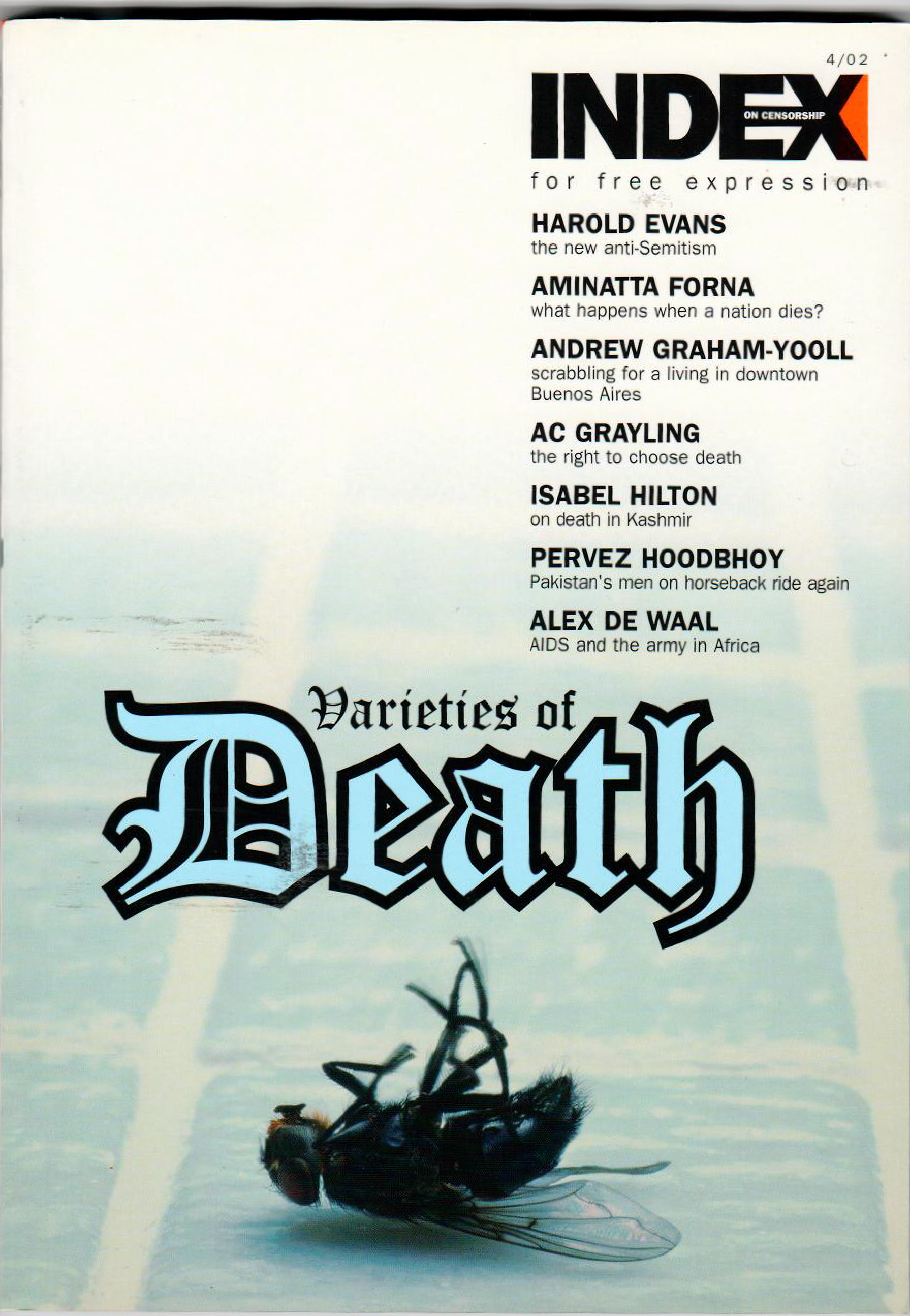
Varieties of death, the winter 2002 issue of Index on Censorship magazine.
Beyond the Gun is a collection of photographs and statements from Kashmiri people in 2002. Its emotive language and testimony from residents who felt betrayed by India’s handling of the region, coupled with photographs of members of the community, make for a stirring read.
By Sheba Chhachhi, each photograph and collected testimony tells a different story. Some, like the words from carpet worker Jana, show the danger of bringing to light the problems caused by local authorities and provides a chilling account of escaping molestation by a border security force soldier.
Jana said: “I faced the power of his gun with the power of my mind. I felt no fear. I had the axe. Had the axe not been there; there was a rolling pin, a ladle. If I had a gun, they would have seized it long ago. These are my own implements. No one can take them away from me.”[/vc_column_text][/vc_column][/vc_row][vc_row][vc_column][vc_column_text]

Partition, the November 1997 issue of Index on Censorship magazine
In 1997, Pakistan and India celebrated 50 years of independence, but continuing tensions between the two muted the festivities.
In this article from that year, Eqbal Ahmad set out the problems caused by a misguided approach to decolonisation by the United Kingdom, which led to the partition of Pakistan and Bangladesh.
Though not specifically about the troubles in Kashmir, much of the hostility between Pakistan and India is thoughtfully explained and ensures a greater understanding of the conflict.[/vc_column_text][/vc_column][/vc_row][vc_row][vc_column][vc_column_text]

Varieties of death, the winter 2002 issue of Index on Censorship magazine.
In this 2002 article, Sidharth Bhatia claims India once had the world’s largest and freest media, something which has now changed. It takes a historical journey explaining chronologically just how India’s media freedom has been squeezed.
Bhathia ponders the problems populist jingoism can have on freedoms, citing the border war in 1999 as a prime example.
“More worrying is the decline in any challenge to the received wisdom on contentious issues such as human rights abuses, especially in Kashmir. This was seen at its most blatant during the border war at Kargil in 1999 between Indian and Pakistani soldiers (disguised as irregulars) who had infiltrated the area.”[/vc_column_text][/vc_column][/vc_row][vc_row][vc_column][three_column_post title=”You may also like to read” category_id=”581″][/vc_column][/vc_row]
10 Jul 2020 | News and features, Student Reading Lists
[vc_row][vc_column][vc_column_text]This week, 150 writers and academics signed an open letter expressing dismay at the current state of free and open debate. The list of signatories is like a Who’s Who of contributors to Index on Censorship magazine over the years. We have looked into our archives to dig out some of the articles we have published by some of the signatories.
Margaret Atwood defends fiction as a worthwhile use of free expression, Salman Rushdie decries total censorship in Pakistan, Noam Chomsky examines how atrocities are reported by those committing them, Nadine Strossman writing in 1995 paints a shockingly current picture of the USA today, and Eva Hoffman discusses her relationship with language as a Polish emigrant to Canada.
Don’t tell us what to write – Margaret Atwood
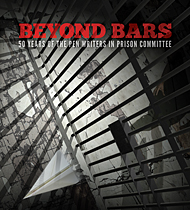 Writing for a special edition of Index on Censorship in 2010, which marked 50 years of the Pen Writers in Prison Committee, Margaret Atwood upheld the importance of being free to write unfettered by expectations or demands. Atwood explored the impulse of journalists to reveal the truth, writing: “You can take the guts out of the investigative journalists, both figuratively and literally, but so far no one has been able to completely suppress the human urge that’s at least as old as the Book of Job: the need to tell.” She also examined attitudes towards fiction. Being a self-described fiction writer and poet, Atwood talked about how fiction writers often write with intentions to make a certain impact, perhaps to better their readers or the world at large, but placing this as a caveat for fiction to be considered worthwhile,”is to fall into the very same kind of thinking that leads to censorship.” Click here to read the full article.
Writing for a special edition of Index on Censorship in 2010, which marked 50 years of the Pen Writers in Prison Committee, Margaret Atwood upheld the importance of being free to write unfettered by expectations or demands. Atwood explored the impulse of journalists to reveal the truth, writing: “You can take the guts out of the investigative journalists, both figuratively and literally, but so far no one has been able to completely suppress the human urge that’s at least as old as the Book of Job: the need to tell.” She also examined attitudes towards fiction. Being a self-described fiction writer and poet, Atwood talked about how fiction writers often write with intentions to make a certain impact, perhaps to better their readers or the world at large, but placing this as a caveat for fiction to be considered worthwhile,”is to fall into the very same kind of thinking that leads to censorship.” Click here to read the full article.
Last chance? Salman Rushdie

Writers and Apartheid, the June 1983 issue of Index on Censorship magazine.
Is there dark humour to be found in an oppressive regime’s censorship? Salman Rushdie opened his piece, first published in Index in 1983 and republished in 2012 in the 40 year anniversary special issue, by examining this question through his first encounters with the censorship of films as a child. Censorship, he wrote, became less of an abstract source of the absurd when he began to experience it as a personal reality. On returning to Karachi, Pakistan after studying at Cambridge, Rushdie’s attempts at expression and creativity were curtailed by censors, at one point being told “ ‘the word pork may not be spoken on Pakistan television.’” He wrote of the total censorship enacted by the Pakistani government who, unlike the Indian government, had a firm and terrifying grip over journalists. What are the effects of such censorship? Rushdie questioned. “Where there is no debate, it is hard to go on remembering, every day, that there is a suppressed side to every argument. It becomes almost impossible to conceive of what the suppressed things might be.” Click here to read the full article.
Confronting the Monster – Noam Chomsky
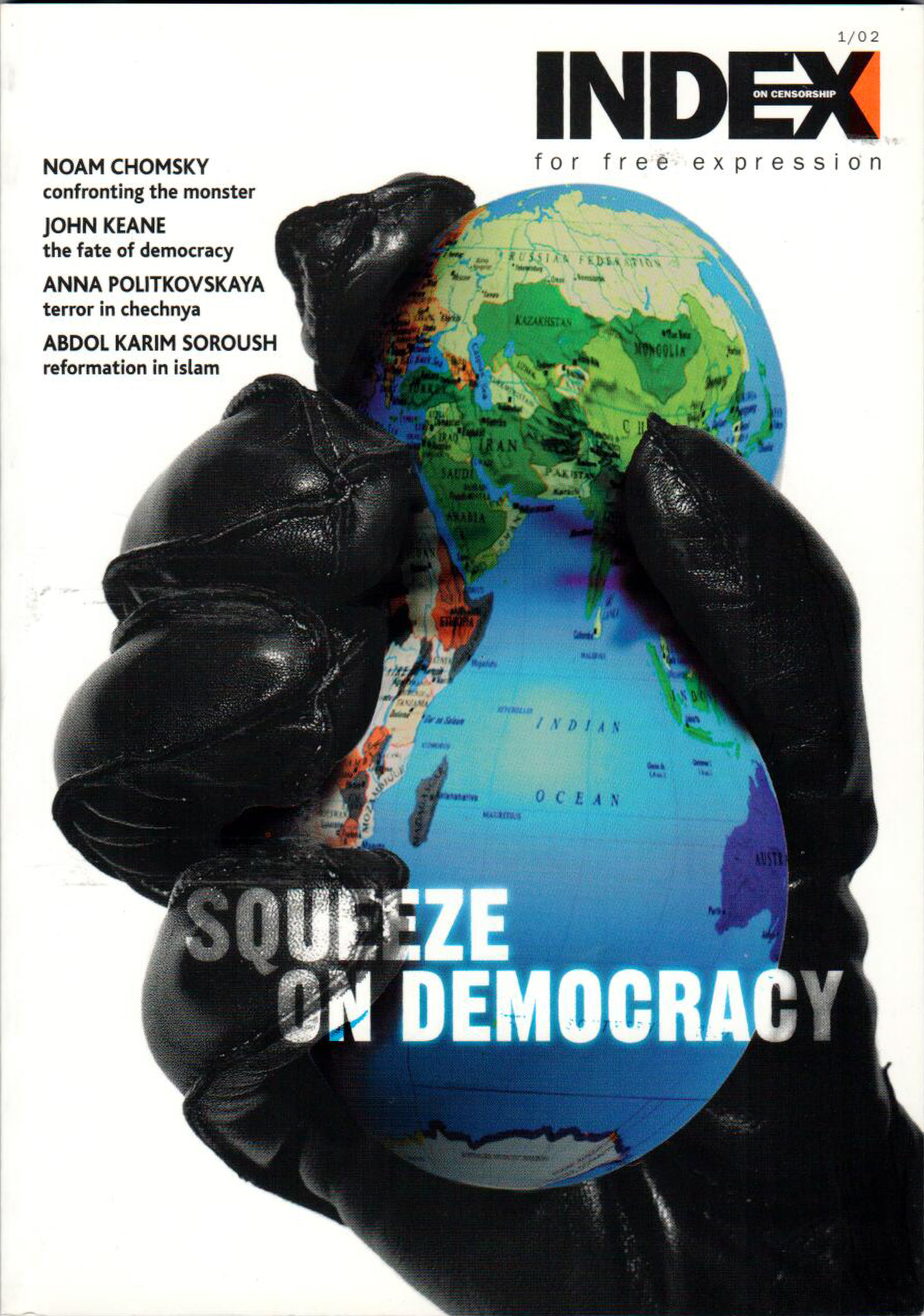
Squeeze on democracy, the spring 2002 issue of Index on Censorship magazine.
Writing in early 2002, arguably of the most pivotal points in recent US history, Noam Chomsky examined the coverage, or lack thereof, of the reaction and aftermath of the 9/11 terrorist attacks, and uses this example to dissect the notions of “them” and “us” in reporting on atrocities. The bombing campaign carried out by the US army on Afghanistan in October 2001, Chomsky wrote, left millions of Afghan civilians starving. Appeals to the US for an end to the bombing from UN bodies were rejected, and this was “virtually unreported”, as was a warning of humanitarian catastrophe from the Food and Agricultural organisation. Chomsky explained that the erasure of one’s own crimes against humanity is not a uniquely American phenomenon writing: “Only those entirely ignorant of modern history will find any of this surprising.” In the early 1990s, Chomsky wrote, the British government removed from the Public Record Office all files concerning the use of poisonous gas against “uncivilised tribes”. He summed up “the powerful determine what counts as history, what passes through the filters is the terrorism of the weak against the strong and their clients.” Click here to read the full article.
Diverting Tactics – Nadine Strossman

Rewriting history, the May 1995 issue of Index on Censorship magazine
Despite having been written in 1995 Nadine Strossman’s article examining attacks on The Bill of Rights, freedom of expression, and the groups in US society these attacks have the harshest impact on, feels startlingly current. Strossman wrote that the government proposals to criminalise desacration of the US flag would amount to “punishing the political protest that should be the most protected form of expression in a democratic society”. The violent dispersal of the ongoing protests sparked by the murder of George Floyd is a chilling reminder of the assault on freedom of expression in the USA today. Strossman highlighted how the rights of non-white groups are being specifically targeted through the disparagement of affirmative action programmes, which displays “the diminished national commitment to racial justice”. This is another topic, it perhaps goes without saying, that is an issue in present-day America. Strossman dissected the actions of politicians as quick fixes for societal problems. Click here to read the full article.[/vc_column_text][/vc_column][/vc_row][vc_row][vc_column][vc_column_text]Words between worlds – Eva Hoffman and Raja Shehadeh
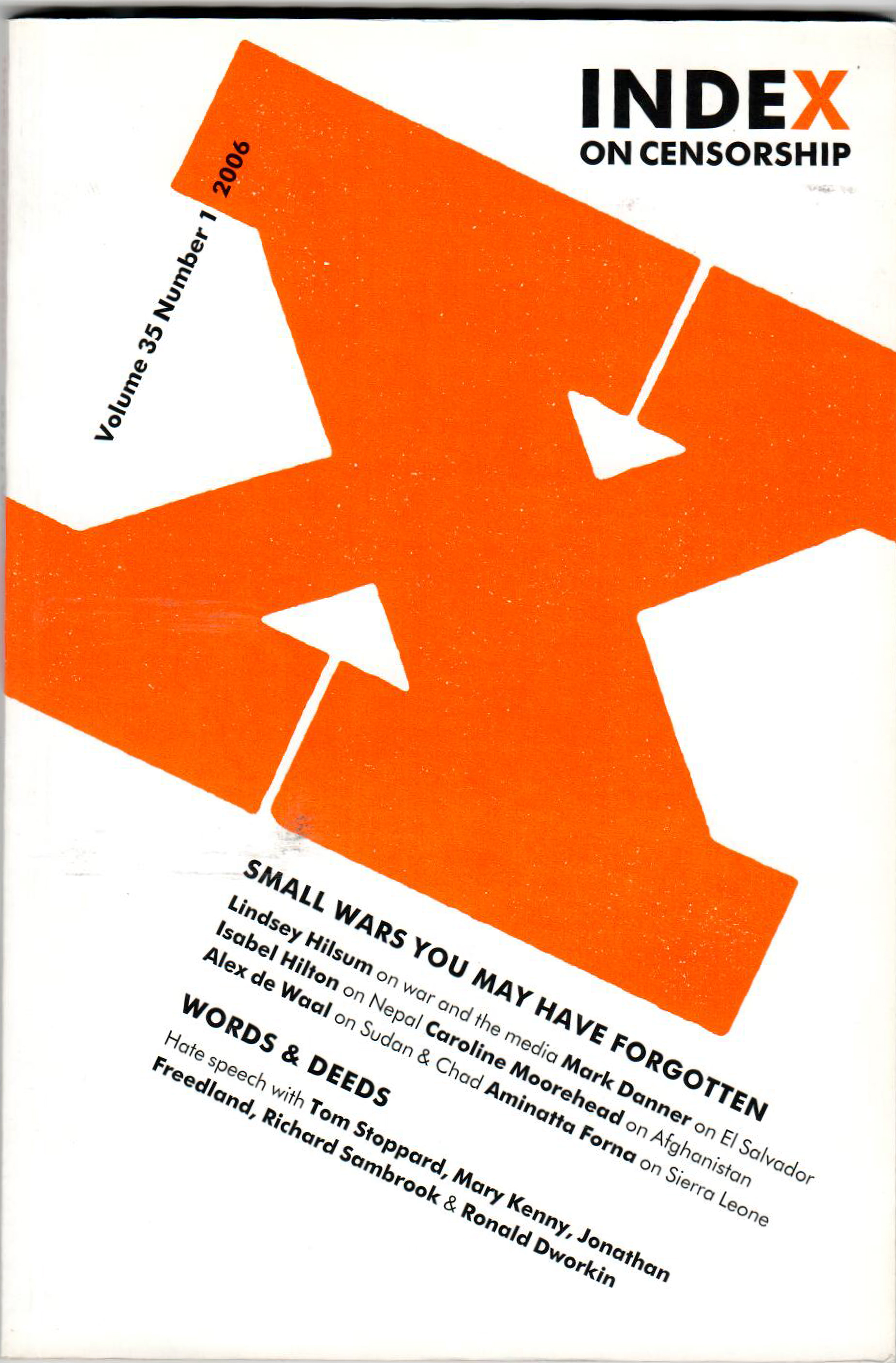 Eva Hoffman, author of Lost in Translation, spoke to then-editor Judith Vidal-Hall about her experience of emigrating from Poland to Canada as a child and developing a new relationship with language. As her native Polish became surplus to requirement, and English loomed as an unknown quantity, “I discovered to what extent language and culture constructs us really. To what extent it informs not only our larger assumptions and ideologies about the world”. Hoffman told Vidal-Hall how, having absorbed English as a second language, she found it to be beneficial as a writer; it gave her a vantage point of two cultures, two worlds. When asked why she started to write, Hoffman explained that through her words she might connect with people who had shared similar experiences: “I had some hope that perhaps I was trying to talk about things that had some meaning for other immigrants as well, that perhaps there was a kind of broader meaning to it”. Click here to read the full article.[/vc_column_text][/vc_column][/vc_row][vc_row][vc_column][three_column_post title=”You might also want to read” category_id=”7273″][/vc_column][/vc_row]
Eva Hoffman, author of Lost in Translation, spoke to then-editor Judith Vidal-Hall about her experience of emigrating from Poland to Canada as a child and developing a new relationship with language. As her native Polish became surplus to requirement, and English loomed as an unknown quantity, “I discovered to what extent language and culture constructs us really. To what extent it informs not only our larger assumptions and ideologies about the world”. Hoffman told Vidal-Hall how, having absorbed English as a second language, she found it to be beneficial as a writer; it gave her a vantage point of two cultures, two worlds. When asked why she started to write, Hoffman explained that through her words she might connect with people who had shared similar experiences: “I had some hope that perhaps I was trying to talk about things that had some meaning for other immigrants as well, that perhaps there was a kind of broader meaning to it”. Click here to read the full article.[/vc_column_text][/vc_column][/vc_row][vc_row][vc_column][three_column_post title=”You might also want to read” category_id=”7273″][/vc_column][/vc_row]
1 Jul 2020 | China, News and features, Student Reading Lists
[vc_row][vc_column][vc_column_text]
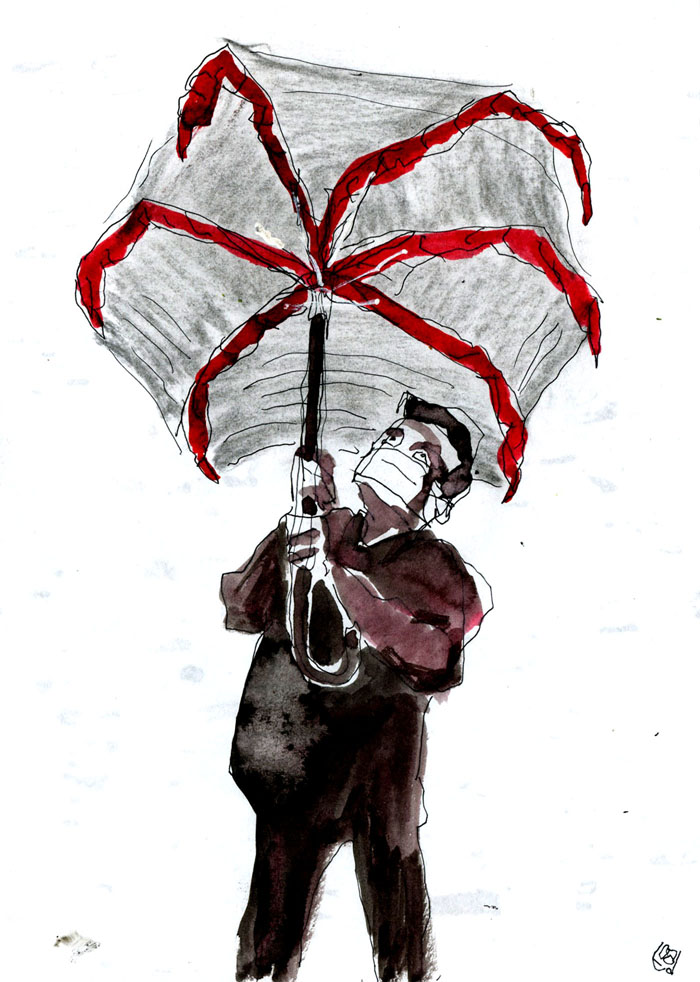
Illustration from cartoonist tOad published today in response to the new law. twitter.com/t0adscroak, www.unsitesurinternet.fr
The National Security Law passed on 30 June in Hong Kong has dealt a massive blow to the city’s status as an autonomous region into which the Chinese government’s suppression of freedom of expression doesn’t encroach. The new law will criminalise “any act of secession, subversion of the central government, terrorism or collusion with foreign or external forces”.
Language like this, as those on the mainland may have experienced, could be manipulated to apply to any behaviour the Chinese government doesn’t like, leaving journalists, activists, protesters and campaigners at risk. Activists in Hong Kong have already begun to shut down their operations out of fear of reprisal in the wake of the law.
Since 1997, when Hong Kong was handed back to China having previously been a British colony, Hongkongers have enjoyed freedom of expression, including a flourishing free press, under the “one country, two systems” constitutional principle. As this principle begins to crumble, we look back at pieces published in Index magazine in 1997 which explored the implications of the handover and the future relationship between mainland China and Hong Kong.
In this edited version of the speech given by Professor Helen Fung-Har Siu in Hong Kong in 1996, she explored the national identity of Hong Kongers and how it intersected with the oppressive nature of the Chinese authorities. In the years preceding the 1997 handover, the people of Hong Kong enjoyed freedom of expression; Siu noted that one in six people there marched in protest at the 1989 Tiananmen Square Massacre. Dissecting the socioeconomic developments in Hong Kong through the 1970s and 80s, Siu questioned how the region and its people, who are accustomed to independence from China, would adapt to its new relationship with the People’s Republic.
Published in early 1997 in anticipation of the handover, Geremie R Barmé, author of Shades of Mao: The Posthumous Cult of the Great Leader, wrote on the flow of popular culture from Hong Kong and Taiwan to mainland China through the 1980s. He explored how the lure of Beijing’s culture waned through the 70s, leading people to soak up the film and music coming from the south, despite attempts by the authorities to censor it. Hong Kong, independent from the Chinese authorities, acted as a conduit between the people in mainland China and Taiwan, and indeed the rest of the world. Barmé predicted that, as Hong Kong returned to China, the subsection of society supporting communist ideals would be brought to the fore by the mainland.
He wrote: “The patriotic significance of Hong Kong’s return to the mainland is lost on no-one. It is part of the final process of what the Communist authorities, and many people in China, see as the reunification of a divided nation.”
Ma Jian, an artist who left Beijing for Hong Kong in 1990, shared his feelings of liberation as he crossed the border and reflects on the suppression of his art on the mainland. Demanding rights and freedom from the Chinese authorities was, he wrote “like being on a battlefield”. Jian wrote that he would remain in Hong Kong after the handover, but projected a lack of optimism about his future freedoms.
“As we watch, incredulously, pre-ordained history advances, or rather, steps backwards to meet us,” he wrote. “No-one asks whether we accept the past, whether we can go and live the time we have already lived. It is as though, studying at middle school, we are suddenly sent back to kindergarten.”
In July 1998, Edward Lucie-Smith visited Hong Kong to find out how the city was acclimatising to the handover one year on. Finding local people unwilling to discuss at length the direction freedom of speech had taken, Lucie-Smith looked to global economic developments and how they could impact Hong Kong’s political future, and in turn the future of freedom of expression. Hong Kong faced an economic downturn in 1998, along with other so-called ‘tiger-economies’, meaning the Hong Kong Chinese elite, who were middlemen between the democratic forces in Hong Kong and the Chinese authorities, may have chosen to move to other parts of the world, leaving Hong Kong and its people more at risk of being ideologically swallowed up by the mainland.
He wrote: “The general feeling was that the British were handing over an economic jewel – a financial mechanism so successful and so finely tuned that the mainland Chinese government would be foolish to interfere with its functioning. But would it be able to resist tinkering, on ideological grounds, with the ‘special economic zone’ within China that Hong Kong was now to become?”
Published in January 1997, Jonathan Mirsky, then East Asia editor of The Times, wrote on how freedom of expression began to crumble in Hong Kong in anticipation of the handover. He described how news channels reported on China in a “vapid or grovelling” manner, to avoid attempts at censorship by Chinese representatives in Hong Kong.
Outspoken democratic politicians told Mirsky how their colleagues no longer wanted to be associated with them. Organisations were expected to plan celebrations for the handover, and comply. Mirsky predicted a dismal future for Hong Kong where loyalty to the Party would be an overriding expectation.
Charles Goddard, at the time of writing a member of the Hong Kong Journalists Association, discussed Hong Kong’s position as eyes on China for the rest of the world, where issues such as human rights abuses in mainland China could be discussed and dissidents from the Chinese authorities could find a relatively safe haven. Goddard, however, highlighted the dangers to journalists in Hong Kong reporting negatively about China, predicting that the status of the city as a place where freedom of expression could flourish would only diminish.
Liu Dawen, at the time of writing the editor of Front Line magazine, took an optimistic view of Hong Kong’s future, believing that the spirit of democracy would not wane.
“In the longer term, the Party cannot stem the ‘raging tide’ of democracy indefinitely either in Hong Kong or in the People’s Republic. When things reach a certain pitch, the pendulum must swing back in the opposite direction,” he wrote.
Charting the arrests and imprisonments of Chinese journalists, Asia-Pacific researcher for Reporters San Frontieres Barbara Vital-Durand painted a picture of China as a country which cracked down harshly on outspoken dissidents from the party line. She foreshadowed a world in which, post-handover, Chinese authorities would extend the jaws of censorship to crush Hong Kong journalists, and access to the internet on the mainland would be tightly controlled.
“Journalists’ organisations and free speech groups have been unsuccessful in getting the British authorities – or subsequently China’s Preparatory Working Committee (PWC) – to abolish several legislative measures which, if left in place, will provide the Chinese authorities with some powerful weapons to use against the media,” she wrote.[/vc_column_text][/vc_column][/vc_row][vc_row][vc_column][vc_basic_grid post_type=”post” max_items=”3″ grid_id=”vc_gid:1593615252756-723f64f2-cdee-10″][/vc_column][/vc_row]
12 Mar 2020 | News and features, Student Reading Lists
[vc_row][vc_column][vc_column_text]In August 2019 the Indian government under Narendra Modi, leader of the the Hindu nationalist Bharatiya Janata Party, revoked Article 370 of the Indian constitution. The article had granted the state of Jammu and Kashmir the autonomy to write their own constitution and make their own laws. Since the article was revoked, residents of Jammu and Kashmir have been subjected to the world’s longest internet shutdown, a serious breach of their right to free expression and to access information. As the ban on high-speed internet continues, Index looks back on the history of freedom of expression in India, from the years following The Emergency, to the present.

Libya: Criticise & be killed, the December 1980 issue of Index on Censorship magazine
In 1975 Prime Minister Indira Gandhi was convicted of election malpractice conducted during her 1971 campaign. Despite this, she clung onto power and declared a state of emergency which lasted for 19 months, known as The Emergency. During this time, members of the political opposition were imprisoned and the press heavily censored. In this article written in 1980, the year Gandhi was re-elected, Michael Henderson questions if Indian journalists have a long enough memory and a robust enough spirit to stand up to a prime minister with a clear and recent track record of control of the press.
Read the full article[/vc_column_text][/vc_column][/vc_row][vc_row][vc_column][vc_column_text]

Black voices in South Africa, the December 1984 issue of Index on Censorship magazine
In 1984, George Theiner writes of an India still scarred by The Emergency and a visit to Index on Censorship by Mr Justice A N Grover, chairman of the Press Council of India, who took issue with the magazine’s continuing criticism of the Indian press. Theiner interviewed journalists about the future of democracy and a free press under Indira Gandhi. He found a mixture of those who were still in shock about the censorship during The Emergency, and those who were complacent in a belief that it couldn’t happen again. (The future of India under Gandhi came to be something of a moot point as, in October 1984, a few months after this article was published, she was assassinated by her own bodyguards.)
[/vc_column_text][vc_column_text][/vc_column_text][/vc_column][/vc_row][vc_row][vc_column][vc_column_text]
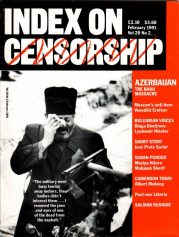
Azerbaijan: the Baku Massacre, the February 1991 issue of Index on Censorship magazine
In 1991 India had a free press… in newspapers. Television and radio were state-owned and state-exploited. Other innovative types of media became a political battleground, with opposition parties promising to release the government’s grip on a news outlet that was fast evolving. Sidharth Bhatia’s piece details the independent video magazines set up by journalists which had to be rented from a video shop. When these magazines became successful, reaching a wide audience and providing information not stifled by a state agenda, government censorship began to encroach upon them.
Read the full article [/vc_column_text][/vc_column][/vc_row][vc_row][vc_column][vc_column_text]
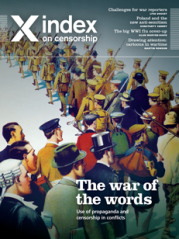
The war of the words, the March 2014 issue of Index on Censorship magazine
Prayaag Akbar examines the role the rich and powerful have in press censorship in India, but in this case it is wealthy business owners, rather than the government, who come under scrutiny. Media outlets who find themselves owned by a large business conglomerate, may then be under pressure to self-censor in order to avoid reporting negatively on the hand that feeds them. Akbar cites examples of the collision of business interests with journalistic integrity as the richest men in India buy up large portions of the national media groups.
Read the full article
[/vc_column_text][/vc_column][/vc_row][vc_row][vc_column][vc_column_text]
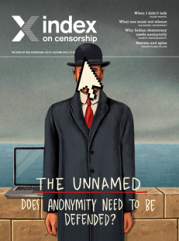
The unnamed, the September 2016 issue of Index on Censorship magazine
Is online anonymity allowing trolls to abuse women without consequences, or it is vital for the safety of those whose expression does not follow the party line? In 2016, as Twitter became more widely used in India, and issues of trolling became apparent, government ministers suggested removing the anonymity of trolls in a bid to increase accountability. Suhrith Parthasarathy reports on how state involvement with online expression could lead to the anonymity of activists being revoked to protect state interests.
Read the full article[/vc_column_text][/vc_column][/vc_row][vc_row][vc_column][vc_column_text]
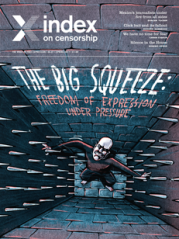
The Big Squeeze, the April 2017 issue of Index on Censorship magazine
In November 2016, a Supreme Court order made it obligatory to stand during the national anthem, which is played in Indian cinemas before the film begins, equating being patriotic with being a law-abiding citizen. Lawyer and writer Suhrith Parthasarathy examines the legal complexities of enforcing shows of patriotism in a country whose constitution guarantees freedom of expression, and speaks to people who have been subject to police interviews for choosing to stay seated.
Read the full article[/vc_column_text][/vc_column][/vc_row][vc_row][vc_column][vc_column_text]
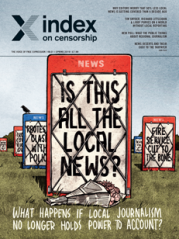
Is This All the Local News?, the April 2019 issue of Index on Censorship magazine
Rituparna Chatterjee reports on the importance of local news, and threats faced by local news journalists in India. Journalists working in rural parts of India can face pay too low to survive on, and can be susceptible to bribes from local police officers and politicians, keen to censor scandals. Chatterjee also highlights how tribal and indigenous communities can end up excluded from the national narrative of India when large media conglomerates do not report on issues in the areas they live in.
Read the full article[/vc_column_text][/vc_column][/vc_row][vc_row][vc_column][vc_column_text]
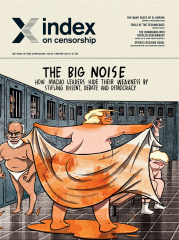
The Big Noise, the December 2019 issue of Index on Censorship magazine
The Emergency of 1975-1977 has been seen in later years as a blip in freedom of expression in India. However, since the election of Modi to prime minister in 2014, freedom of expression in India is taking a hit. Modi’s supporters are instilling fear and committing violence against those considered outsiders, often Muslims. Such violence is not being roundly condemned by their leader; his silence is taken as tacit approval. Meanwhile the internet shutdown imposed on Kashmir has not been fully lifted, an attack on access to information.
Read the full article[/vc_column_text][/vc_column][/vc_row]









 Writing for a special edition of Index on Censorship in 2010, which marked 50 years of the Pen Writers in Prison Committee, Margaret Atwood upheld the importance of being free to write unfettered by expectations or demands. Atwood explored the impulse of journalists to reveal the truth, writing: “You can take the guts out of the investigative journalists, both figuratively and literally, but so far no one has been able to completely suppress the human urge that’s at least as old as the Book of Job: the need to tell.” She also examined attitudes towards fiction. Being a self-described fiction writer and poet, Atwood talked about how fiction writers often write with intentions to make a certain impact, perhaps to better their readers or the world at large, but placing this as a caveat for fiction to be considered worthwhile,”is to fall into the very same kind of thinking that leads to censorship.” Click
Writing for a special edition of Index on Censorship in 2010, which marked 50 years of the Pen Writers in Prison Committee, Margaret Atwood upheld the importance of being free to write unfettered by expectations or demands. Atwood explored the impulse of journalists to reveal the truth, writing: “You can take the guts out of the investigative journalists, both figuratively and literally, but so far no one has been able to completely suppress the human urge that’s at least as old as the Book of Job: the need to tell.” She also examined attitudes towards fiction. Being a self-described fiction writer and poet, Atwood talked about how fiction writers often write with intentions to make a certain impact, perhaps to better their readers or the world at large, but placing this as a caveat for fiction to be considered worthwhile,”is to fall into the very same kind of thinking that leads to censorship.” Click 


 Eva Hoffman, author of Lost in Translation, spoke to then-editor Judith Vidal-Hall about her experience of emigrating from Poland to Canada as a child and developing a new relationship with language. As her native Polish became surplus to requirement, and English loomed as an unknown quantity, “I discovered to what extent language and culture constructs us really. To what extent it informs not only our larger assumptions and ideologies about the world”. Hoffman told Vidal-Hall how, having absorbed English as a second language, she found it to be beneficial as a writer; it gave her a vantage point of two cultures, two worlds. When asked why she started to write, Hoffman explained that through her words she might connect with people who had shared similar experiences: “I had some hope that perhaps I was trying to talk about things that had some meaning for other immigrants as well, that perhaps there was a kind of broader meaning to it”. Click
Eva Hoffman, author of Lost in Translation, spoke to then-editor Judith Vidal-Hall about her experience of emigrating from Poland to Canada as a child and developing a new relationship with language. As her native Polish became surplus to requirement, and English loomed as an unknown quantity, “I discovered to what extent language and culture constructs us really. To what extent it informs not only our larger assumptions and ideologies about the world”. Hoffman told Vidal-Hall how, having absorbed English as a second language, she found it to be beneficial as a writer; it gave her a vantage point of two cultures, two worlds. When asked why she started to write, Hoffman explained that through her words she might connect with people who had shared similar experiences: “I had some hope that perhaps I was trying to talk about things that had some meaning for other immigrants as well, that perhaps there was a kind of broader meaning to it”. Click 







